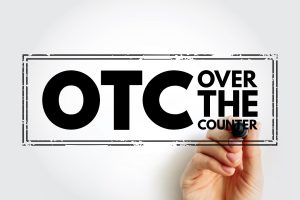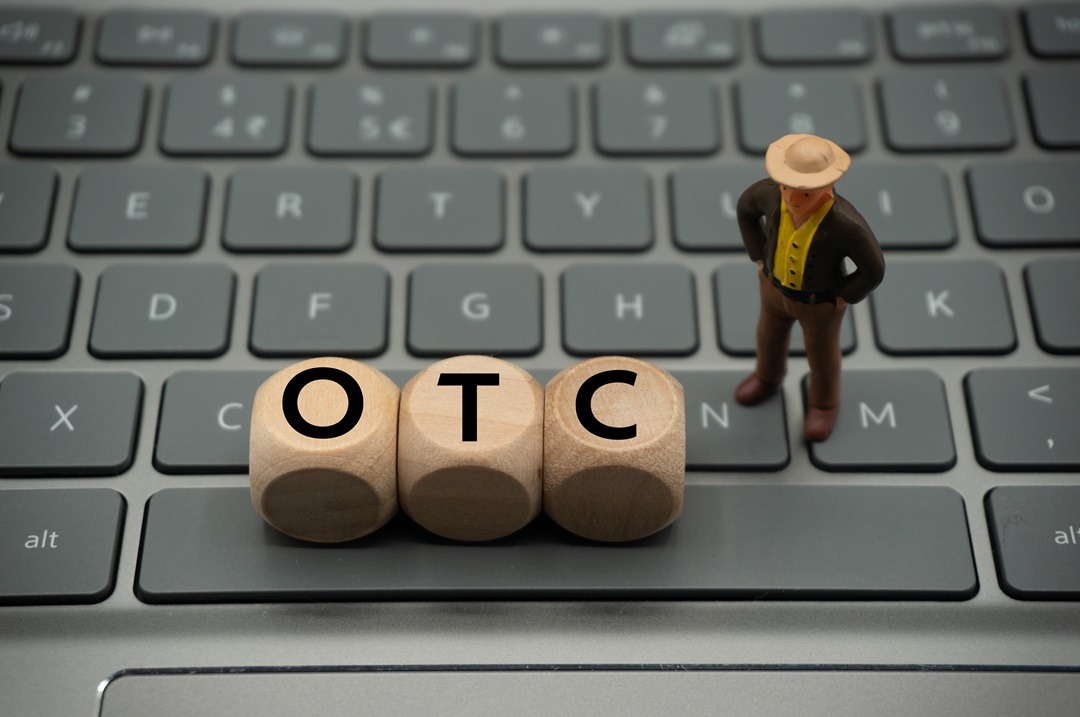OTC Trading and Bank Transactions in 202310 min read
Reading Time: 4 minutesIn the world of markets OTC trading has become increasingly influential. This type of trading which takes place directly between two parties without the involvement of an exchange has gained popularity due to its adaptability and personalized nature. As we navigate through the financial trends of 2023, institutions like The Guardian Bank are at the forefront, facilitating these transactions and shaping the future of OTC trading.
OTC Trading Definition and Features
OTC trading, also known as, over the counter trading is a type of trading that takes place directly between two parties without the involvement of an exchange overseeing the process. This kind of trading is quite prevalent in the markets, where various assets, like securities, commodities and even cryptocurrencies are bought and sold.
One of the aspects of OTC trading is its flexibility as it permits contracts and negotiable terms setting it apart from conventional exchanges. This is where institutions like The Guardian Bank come into play, providing a platform for these transactions.
What Does OTC Mean in Trading?
In trading, OTC refers to the process where financial instruments such as stocks, commodities, or derivatives are traded directly between two parties. It’s a bilateral transaction where the details are agreed upon privately, often facilitated by OTC brokers. The Guardian Bank, for instance, offers OTC trading services, allowing traders to negotiate contracts directly with each other.

What is OTC Trading in Crypto?
In the world of cryptocurrency, OTC (over the counter) trading involves the exchange of cryptocurrencies between two parties, like how OTC trading works in conventional financial markets. This type of trading is preferred by investors often called whales, who wish to buy or sell amounts of cryptocurrency without causing any major fluctuations in market prices. The Guardian Bank, recognizing the growing demand for crypto OTC trading, has incorporated this service into its offerings.
Is OTC Trading Legal?
Absolutely, over the counter (OTC) trading is completely legal and widely accepted in the industry. It’s worth mentioning that although the regulations for OTC trading are less stringent than those for exchange trading there is still oversight in place. Institutions such as The Guardian Bank, which assist in OTC trading operate within the boundaries of laws and regulations to ensure compliance.
Is OTC Trading Risky?
Like any type of trading OTC trading carries its own set of risks. One of the concerns is the absence of an exchange, which increases the chances of counterparty default. However you can minimize this risk by opting for a trusted OTC trading service. Take The Guardian Bank for instance; they have implemented risk management systems that prioritize client protection.
How Do You Use Crypto OTC?
Crypto OTC trading is typically used by large investors who want to trade large volumes without affecting the market price. To access cryptocurrency OTC services the first step is to create an account, with a provider, such, as The Guardian Bank. After setting up your account you can begin trading with fellow traders.
What is OTC vs P2P Crypto?
OTC (over the counter) and P2P (peer to peer) cryptocurrency trading share a feature. Transactions between individuals. However the main distinction lies in the involvement of intermediaries. In OTC trading a facilitator such as The Guardian Bank plays a role, in facilitating the transaction while P2P trading relies on decentralized platforms without an authority to facilitate the transaction.
What is OTC vs Exchange?
The main difference between OTC and exchange trading is where the transaction takes place. Over the counter (OTC) trading transactions occur privately between parties with the assistance of a third party. In contrast exchange trading involves transactions taking place on an exchange, where prices are determined based on the balance between supply and demand.
OTC trading grants the involved parties control over the transaction terms, such as the price, quantity and delivery date of the asset being traded. This can be advantageous for those with requirements that aren’t met by contracts offered on exchanges. However OTC transactions tend to necessitate more thorough research and assessment, than exchange transactions.
Conversely, exchange trading provides increased transparency and liquidity. Prices and volumes of trades are publicly available, which can help to ensure fair pricing. Additionally, exchanges have clearing houses that guarantee the fulfillment of trades, reducing the risk of counterparty default. However, exchange trading can be less flexible than OTC trading, as the terms of contracts are standardized.

How to Buy OTC Trading Stocks?
If you are looking to purchase OTC stocks the first step is to open an account with an OTC broker. Once your account is all set up you can proceed to place an order for the desired stocks. It’s worth noting that many institutions provide OTC trading services, which simplifies and streamlines the process of buying these stocks.
However it’s crucial to conduct your research and fully comprehend the risks associated with OTC stocks. These stocks tend to have trading volume compared to those listed on exchanges, which can result in volatility and potential challenges when it comes to selling them.
Moreover gathering information about OTC companies may not be readily accessible making it more difficult to make informed investment choices.
Pros and Cons of OTC Trading
OTC trading offers benefits, such as flexibility, the ability to negotiate terms and the chance for fees. However it also carries risks, like counterparty risk and a lack of transparency compared to exchange trading. Institutions work hard to minimize these risks by offering secure and regulated OTC trading services.
One of the advantages of OTC trading is the ability to tailor contracts to needs. This can be especially advantageous for investors or institutions that have requirements that aren’t satisfied by standardized contracts available on exchanges.
Nevertheless the absence of an exchange also means that transparency is reduced in OTC trading. Prices and trade volumes aren’t publicly accessible making it more challenging to ensure pricing. Additionally without a clearinghouse there’s an increased risk of counterparty default in OTC trading.
To summarize OTC trading plays a role in markets by providing a flexible and efficient trading method for large investors. As the financial landscape continues to change institutions, like The Guardian Bank will. Offer services that meet the evolving needs of traders.



